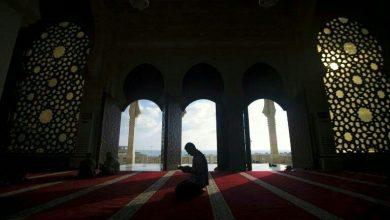
Imām Ibn Qudāmah -rahimahullāh- said:
Know verily that, there are five different scenarios regarding some adversities such as poverty, sickness, fear, and the fitna in this dunya in which a sensible person is highly recommended to be pleased with and expressed his gratitude on them. They are:
1). When one is tried with a calamity, then one is encouraged to show gratitude to Allāh for not being afflicted with a more severe tribulation. For if Allāh wish, He would have made the calamity more severe, then who one earth will safeguard one from it if not Allāh?
2). Expressing gratitude to Allāh for the tribulation not connected to the Deen. ‘Umar radiyallāhu anhu was reported to have said:
I have never being tried with a tribulation except Allāh blessed me with four blessings; The tribulation is not regarding my deen, I am saved from the more severe one, I am contented with it, and I hope for my reward in the sight of Allāh.
A man said to Sahl Bn ‘Abdullahi:
A thief entered my house and took my luggage, Sahl replied to him: Be grateful to Allāh Ta’āla, if Shaitān had entered your heart and corrupted your Īmān thereof, what will you do?
The one who deserves hundred strokes of canes but was fortunately given ten strokes, requires gratitude.
3). Punishment for sins are normally postponed to the Hereafter, but the adversities of this dunya usually alleviate them. The tribulation of the Hereafter are tenacious and it is never lessened, and whoever his punishment is hastened for in this dunya will not be liable for it in the Hereafter.
In this context, it is reported in the “Sahīhu Muslim”:
Verily, every tribulations that come to a Muslim even if it is the pricking of a thorn that there is decreed for him by Allāh good or his sins are obliterated.
4). That such a calamity has been ordained in the mother of the book, thus, it is inevitable. Therefore, it is blessing for one not to be anxious.
Allāhu A’alam! Bārakallāhu fīkum!
*13th Jumāda Ath-thānī,1440H.*
**📨@IslamNode📤**
https://telegram.me/INDailyPosts




